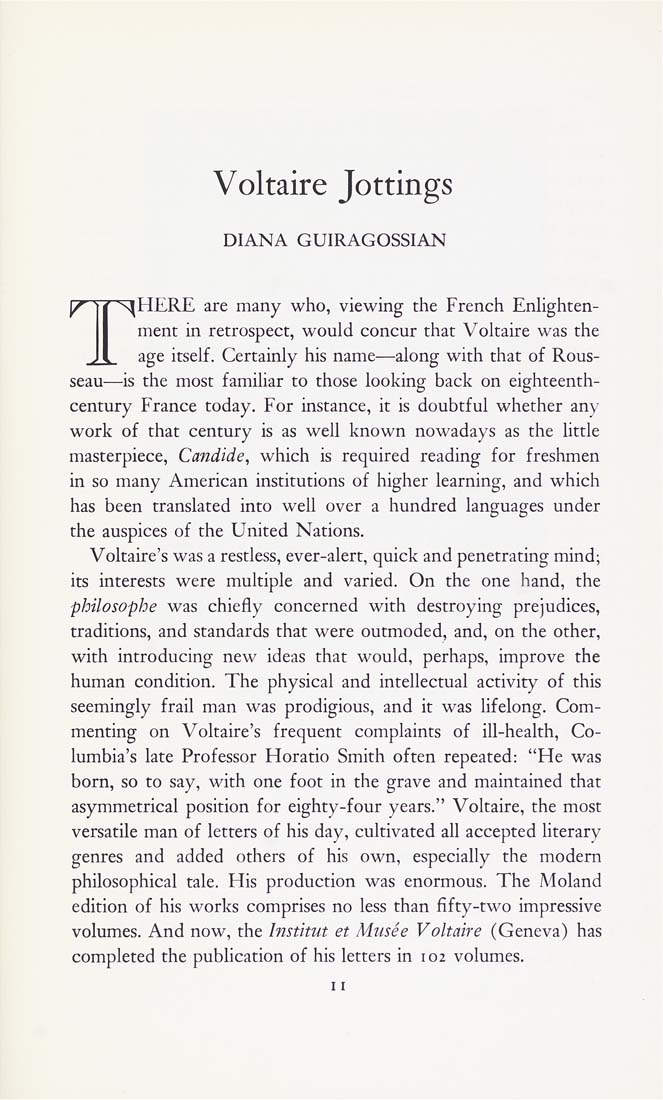Columbia Library columns (v.14(1964Nov-1965May))
(New York : Friends of the Columbia Libraries. )
|
||
|
|
|
|
| v.14,no.2(1965:Feb): Page 11 |

T Voltaire Jottings DIANA GUIRAGOSSIAN (T'TT^HERE are many who, viewing the French Enlighten¬ ment in retrospect, would concur that Voltaire was the age itself. Certainly his name—along with that of Rous¬ seau—is the most familiar to those looking back on eighteenth- century France today. For instance, it is doubtful whether any work of that century is as well known nowadays as the little masterpiece, Candide, which is required reading for freshmen in so many American institutions of higher learning, and which has been translated into well over a hundred languages under the auspices of the United Nations. Voltaire's was a restless, ever-alert, quick and penetrating mind; its interests were multiple and varied. On the one hand, the philosophe was chiefly concerned with destroying prejudices, traditions, and standards that were outmoded, and, on the other, with introducing new ideas that would, perhaps, improve the human condition. The physical and intellectual activity of this seemingly frail man was prodigious, and it was lifelong. Com¬ menting on Voltaire's frequent complaints of ill-health, Co¬ lumbia's late Professor Horatio Smith often repeated: "He was born, so to say, with one foot in the grave and maintained that asymmetrical position for eighty-four years." Voltaire, the most versatile man of letters of his day, cultivated all accepted literary genres and added others of his own, especially the modem philosophical tale. His production was enormous. The Aloland edition of his works comprises no less than fifty-two impressive volumes. And now, the Institut et Musee Voltaire (Geneva) has completed the pubhcation of his letters in 102 volumes. |
| v.14,no.2(1965:Feb): Page 11 |







